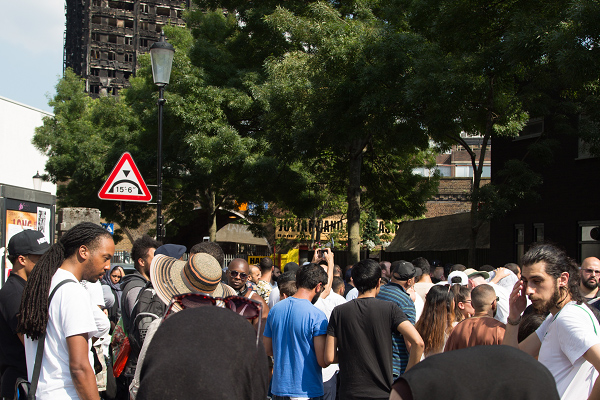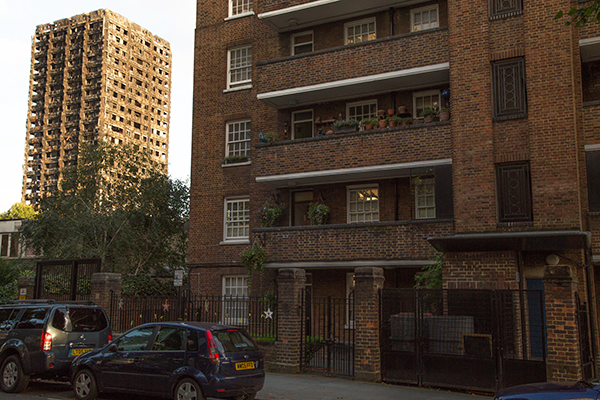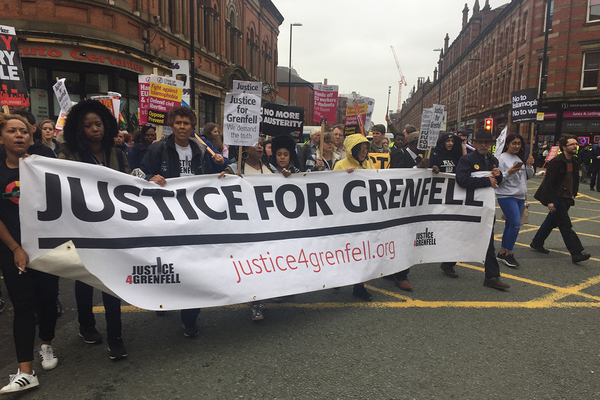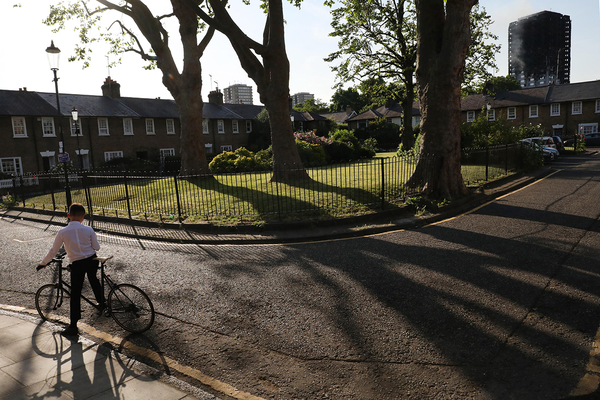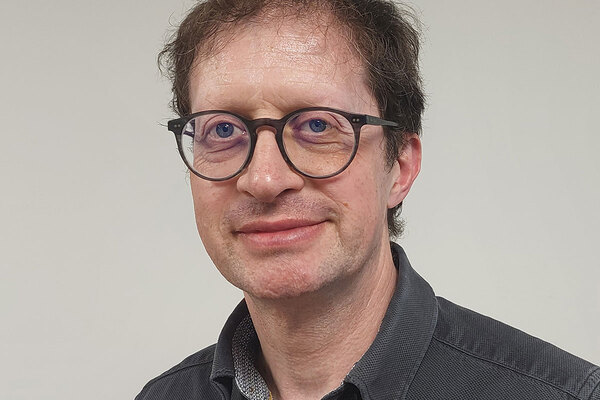You are viewing 1 of your 1 free articles
Grenfell: the survivors’ stories
Four survivors of the Grenfell Tower disaster gave moving speeches to MPs on Tuesday night about their experiences during and after the tragedy – and what should be done now
The event, organised by survivors group Grenfell United, was attended by MPs from across the political spectrum, many of whom were visibly shaken by the testimonies.
Following the speeches, communities secretary Sajid Javid spoke to apologise for “the failure of the state to be there for the people of North Kensington when they needed it most” – repeating an apology previously issued by prime minister Theresa May.
John Healey, Labour’s shadow housing secretary, added: “You have been through unimaginable trauma and grief… and you have had the extraordinary courage to share that tonight and challenge us with some very hard truths about how things were and still are.”
The testimonies are reported below, some of them slightly abridged. They contain details which readers may find upsetting and disturbing.
Ahmed Elgwahry
Ahmed lived on the 22nd floor of Grenfell Tower. His sister Mariem – who was among those who had raised issues with the refurbishment – died in the blaze along with his mother Eslah.
“With the exception of my wife, I lost the two most important women in my life that night. My mum and sister were murdered and cremated that night. To be more specific, my mum and sister were poisoned by the smoke, they were burnt and they were cremated. In addition to that I had to listen to them suffer, I had to listen to them die, I had to listen to fire enter the flat and burn them and everyone else in that room. Furthermore, I had to watch that flat burn for a couple of days. If that’s not torture then I’m not really sure what else is.
The heat of the flames up there is enough to cremate someone in about two hours. The flat burned for two days. So you would hope you would at least get to see your family, instead what I got was fragments of bone and muscle tissue.
“I am asking for one single thing. A simple apology.”
What’s clear here is Grenfell Tower was no accident. Grenfell Tower was a catastrophic incident that should never have happened and was preventable. Grenfell Tower happened due to serious systemic failure. Due to a culture of neglect. Due to a culture of self-interest and due to the fact that residents were treated at certain times as second class citizens.
I am asking for one single thing from RBKC [the Royal Borough of Kensington and Chelsea], repeatedly, and that is for a simple apology. I’m not asking for much. I’m still waiting for that. What I have received is a letter apologising for the aftermath but not for the lead up – that’s probably because if you do that it’s an admission of guilt.
That apology is not just for me, it’s for all of the bereaved."
Ahmed then turned to what he believed should be done to prevent a repeat of the tragedy.
Six months on, the thing I’ve started to see is the trauma starting to emerge among the bereaved. There are young men who have lost their whole families, they’ve lost their wives and their children and I’m starting to see them breaking down. We’re now approaching the festive period when people come together. And loneliness is a real problem – particularly among young men. So I think we need to be mindful because I’m not sure they are getting the monitoring they need.
Maybe we need to start reviewing policies about health and safety. Maybe we need to review what I would refer to as the silent regulator – the regulator of social housing. Most residents did not know the regulator existed, they [the regulator] did not make themselves known before the fire and I’m not sure what they have done afterwards.
So maybe they need more resources. Maybe we need to review their policies.
As I understand it, a complaint that can be escalated to the Homes and Communities Agency is a complaint about systemic failure.
I think it’s safe to say that Grenfell was exactly that.
The other thing I think I would like to see is the building regulations, specifically approved document Part B which refers to design and construction and materials.
That needs to be reviewed.
There were 16 inspections done during the refurbishment. We do have to question what those inspections involve, we do have to review what that process is, because we do have to wonder whether there are any other high rise towers across the country [that face similar risks]. This is not just about Grenfell.
Fire risk assessments is another one. Maybe we should hand that role back to the local fire authority, which has a genuine interest in making sure that their firefighters aren’t put at risk. Because what happened that night was suicide for those men and women. I can’t even begin to imagine the trauma they are suffering.
And then we’ve got to think about competency, because the way the fire spread it begs the question: do we need to raise the standards of competency for the construction industry. It’s difficult to ignore that debate.
There’s no requirement for us to wait until the public inquiry concludes. There’s no requirement for us to wait for phase one and two completed, there’s no requirement for us to wait for the police investigation to conclude. I think these are realistic things we could start working on, you could start working on, in order to avoid something as catastrophic as this happening again. We just want the truth, we’re not asking for anything else."
“A complaint that can be escalated to the Homes and Communities Agency is a complaint about systemic failure. I think it’s safe to say that Grenfell was exactly that.”
Bellal El Guenuni
Bellal lived with his pregnant and three children on the eighteenth floor of Grenfell Tower. He was not in the building on the night of the fire, but his family were among the last people to escape. Following the fire, his son and daughter both fell into comas for more than three weeks. Volunteers arranged for him to stay in a hotel, but he was told by the hotel manager to find alternative accommodation after just two nights. Then, when his children were discharged from hospital, the family were told they could not have so many people in one room by another hotel.
“On 14 June I called my wife. I wasn’t at home at the time. She was sleeping, I woke her up.
And I told her to wet four towels. And she said ‘why?’ I said ‘because you need to get out, grab the kids’.
She tried to get out, but there was so much smoke in the hall, like literally black smoke. Psychologically you think, ‘the safest place for me to be is inside my house, because there is no smoke at that time, and outside there’s a higher risk’.
An hour later a fire fighter came to the door, knocked on the door: ‘how many of you are in the house?’ ‘There’s four of us.’ ‘Alright stay put, we’re going to knock on your neighbours’ doors, then we’ll come back for you.’
They never did come back. The fire entered the house, she finds her way into the next door neighbour’s house.
Fire comes into the next door neighbour’s house. And at 3.30 she decides to make her way down.
“During the fire, we had every hope in the system.”
She’s heavily pregnant, five or six months pregnant. She grabbed our three year old on her chest, she hangs onto her.
The 11-year-old is behind her, and the eight-year-old is in front. And she went for the staircase at 3.30 and she made it down from the 18th floor to the seventh floor before my son collapsed and hit the ground.
Finally a fire fighter who was making his way down grabs my son, threw him on his shoulder, took him down. On the way down, there were people on the floor. People still half alive. Some held my wife’s dress. My kids, thankfully they made it down. I’m not bereaved as in blood, but I am bereaved in many other ways.
I had my dad’s best friend back home, I had my wife’s best friend back home. I had my kid’s friends. Their teacher passed away. My friends passed away. We are all bereaved, to a certain degree.
Pre-fire we knew that there was mistakes and failings done and so forth.
“During the fire, we had every hope in the system. Every hope in you lot – every hope in the prime minister, every hope in the council, every hope in the fire service, the police and everyone else. But when you’re at a stage where no one gives you any more answers, the fire brigade are just as bamboozled as you, and everyone’s just as confused as you. And you’re thinking you know what, I haven’t got no one to help but myself. That was at the stage during the fire. And then following that, after the fire, you think that, yeah, you know what, things will be better.
Even now we are teaching [the officials] how to be human. When the councillors come and speak with us we have to teach them how to talk to us.
We need you to help us because everybody else has failed. We have no more faith in the local government. We need you to be understanding where we are coming from.
Natasha Elcock
Natasha lived on the 11th floor of the tower with her two grown-up children and six-year-old daughter. Her two adult children were away on the night of the fire, and she escaped the blaze with her daughter and partner.
“I went to sleep as normal and woke up later to the sound of fire engines, but thought it was nothing unusual. Around 20 minutes later I heard voices on the landing so I went to see what was going on. I called 999 and was told to stay where I am.
For me, that was the right thing for them to tell me. I have lived in that block for 20 years and there have been fires before and I slept through them.
Natasha was unable to escape due to thick black smoke, but survived in the flat with her family, flooding it with water from the bath, until around 4am when firefighters reached her door and helped them to escape.
As we went down unfortunately we stumbled on what was a body, myself, my partner, my six year old, we all stumbled on it.
I spent the next few days trying to figure out who, what, where, how did this happen… I don’t see why anyone should have to be going through what we’re going through. I don’t see why anyone should have to have lived through what we’ve lived through.
I worry what the lasting impact is going to be on the children, on the community.
“We stumbled on what was a body, myself, my partner, my six year old, we all stumbled on it.”
All we have been doing for the last six months is trying to get our point across. I don’t want anyone to have to go through what we went through. [I remember thinking] – I don’t even have nail clippers to cut my nails. I mean, everyone has nail clippers. But we lost everything. You have to replace absolutely everything.
I want justice for those young people who died in the fire. I want justice for that person I had to disrespect by stepping on on the stairs. We want justice. Not want. We need justice. We need justice for those 71 people who died so they didn’t die in vain. I want the people did this to me, my neighbours, my friends, my community to be held to account, and I want justice for Grenfell Tower.”
Click here to read about our Never Again fire safety campaign
Shahin Sadafi
Shahin was away due to work on the night of the fire. His mother escaped the blaze and he now chairs Grenfell United.
On the morning of the fire I was at a training course for my job in Southend (Essex) about an hour and a half drive from the tower. At about 1am, I get a phone call from a neighbour screaming at me to escape, to run out of the building because it was on fire.
I begged him to make my mum aware of the fire, who was home away – my brother and my wife were away. He then had to run and fight his way into the building to get my mum out.
I jumped into my car and speedily tried to make my way to Grenfell. When I arrived there it was about quarter past three, and I just ran.
The building was ablaze and I saw blurry faces, I didn’t recognise anyone, I just ran to find my mum.
When I found her, I calmed down a little bit – I managed to get her to safety and then I left her at my neighbours house and went out to look for my neighbours children that I knew were probably in danger. I didn’t realise how bad it was.
I immediately thought everyone got out. But then I heard screams.
I heard people shouting and screaming from the tower. I saw people hanging out of the tower. I saw people waving materials to try and get the attention of the fire services.
Since that morning, we were left on the streets without anyone there to help us apart from the community.
“We were left on the streets without anyone there to help us apart from the community.”
There was no one with a sense of responsibility to say you guys need to go there, this is what needs to happen.
The next day, in the morning, they started to open a few of the community centres and people made their way into the community centres and we started to put lists up on the walls, to find out where our neighbours were. There wasn’t anyone from government or the council there to do that for us. They were absolutely dumbstruck by the catastrophe. So we had to do it ourselves.
We had to put up names, we had to form groups and WhatsApp groups, we had to go door to door to try and identify people and find your neighbours. It was sad when I found some of my neighbours, and it was sad when I didn’t find others.
Since then we realised we needed to form and bring the community together to share information about support and services that might available because there was no one else. There was no one there, a week after the fire, to say this is what’s available. People were being evicted from their hotels and volunteers and residents had to go to their aid and make sure they were looked after.
Grenfell United was formed before the so-called Gold Command was doing anything. Grenfell United was on the ground helping.
Since then we’ve been working with the community and survivors to get answers, to hold people accountable, to allow people’s voices to be heard.
“We’ve been working with the community and survivors to get answers, to hold people accountable, to allow people’s voices to be heard.”
The vast majority of tower survivors and bereaved are members, the committee is democratically elected. Grenfell United seeks to act as a strong, unified, independent, and dignified voice for all of those who survived and all of those who lost their loved ones.
I stress these are just a few stories that are traumatic to listen to, but we need to listen to each and every voice from that tower. It’s our responsibility, all of us to be able to do that.
We have very simple asks. One of them is that every family is to be offered a permanent home immediately – not temporary accommodation, not a hotel but a home, somewhere they can start to rebuild their lives. We are asking for help. We are asking for high quality, dedicated mental health professionals to be provided to each family. Every single person seeks justice. To each person justice might be a different thing – for some it might be the truth or others it might be seeing people held accountable and put behind bars.
But the important thing is the truth must be found and that justice must be seen.
There’s changes to the inquiry that become the cornerstone of building the trust within the inquiry to deliver this truth.
One of the key issues is appointing assessors to sit in a panel with the judge and the chair to lead to the right decision making process that will find these answers.
And finally memory.
We need cast iron assurances in writing that the tower and the site will be fully given over to a memorial of the communities choosing and that the land will be given to the community.”
Grenfell: six months on
We have published a series of articles to mark the six month anniversary of the Grenfell Tower fire, which killed 71 people on 14 June.
Click on the links below to read the pieces:
Six months on from Grenfell, what has changed? Our news team looks at the progress made since the fire
Grenfell: the survivors' stories Read moving speeches to MPs from four people who survived the fire
Councils have no information on privately owned tower blocks It is not just social housing blocks councils need to keep an eye on when it comes to fire safety
Disguised by luxury: fire safety flaws in private blocks revealed Our research challenges Sajid Javid's suggestion a Grenfell-style fire couldn't happen in a luxury block
We need to go much further on fire safety Our editor Emma Maier outlines Inside Housing's view on the state of play
Half of high rises could get sprinkler refit We reveal the sector's projected spend on fire safety improvements since the disaster
The French connection The parallels between a fire in France and the Grenfell tragedy
Less than half of council tower blocks assessed since Grenfell Our exclusive research reveals the state of play regarding councils' fire risk assessments
Circus therapy for children affected by Grenfell How a group offering circus activities is bringing the community together
Dangerous cladding to be removed from giant modular tower blocks Housing association Notting Hill Housing is to spend £8m to remove dangerous material on six of its blocks
